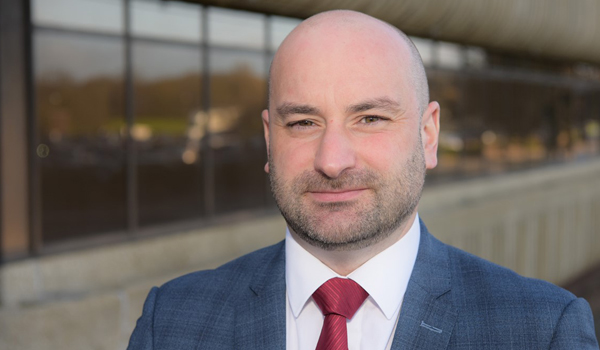No hiding place for FGM perpetrators
Suspects accused of allowing Female Genital Mutilation (FGM) to be carried out can face prosecution in the UK, regardless of where in the world the procedure took place, new guidance issued by the Crown Prosecution Service (CPS) has confirmed.
FGM was first banned in 1985 but cases have proved notoriously difficult to prosecute. The first did not occur until 2015 and involved a doctor who had sewn up a mother following the birth of her child. He was acquitted.
Several other failed prosecutions followed before the first successful case in February this year when a Ugandan woman living in east London was sentenced to 11 years in prison for mutilating her three-year-old daughter.
The new guidance aims to help police and prosecutors to bring more perpetrators to justice, introducing a series of practical updates based on the lessons learned by the CPS in these cases.
It provides additional advice to investigators on which types of expert evidence can be secured to help build a robust prosecution case to bring before the courts, considering pathology, gynaecology, and expert evidence of ritual and religion.
The Female Genital Mutilation Act 2003 increased the maximum penalty for FGM to 14 years but the young age of victims and a reluctance to report the crime to the police because of cultural taboos have both been blamed for low levels of offences being reported.
In theory, some cosmetic vaginal surgery, such as labiaplasty, could fall under the definition of FGM provided for by the 2003 Act. Although there have been no prosecutions in such cases, the guidance has been updated to direct police and prosecutors to consider whether the medical exceptions provided for by the 2003 Act apply in cases of labiaplasty or piercing.
If they do not, the guidance suggests investigators should go on to consider public interest factors, including the age of the victim, whether they provided fully informed and free consent, the level of physical or mental harm caused and the impact on the individual’s quality of life now and in the future.
The guidance confirms that piercing female genitalia will not usually amount to FGM.
Jaswant Narwal, who is the chief CPS prosecutor in Thames and Chiltern as well as the organisation’s lead on FGM cases, said: “Female genital mutilation is a sickening offence that can have a serious lifelong physical and emotional impact on victims.
“We want to send a strong message that this crime does not have to be carried out in the UK for people to be prosecuted by the CPS – we will seek justice for people affected by this horrific practice. There is no hiding place.
“We hope this new guidance will give victims, police and prosecutors the confidence and practical guidance they need to bring more perpetrators of this traumatic abuse to justice.”
Suspects accused of allowing Female Genital Mutilation (FGM) to be carried out can face prosecution in the UK, regardless of where in the world the procedure took place, new guidance issued by the Crown Prosecution Service (CPS) has confirmed.
FGM was first banned in 1985 but cases have proved notoriously difficult to prosecute. The first did not occur until 2015 and involved a doctor who had sewn up a mother following the birth of her child. He was acquitted.
Several other failed prosecutions followed before the first successful case in February this year when a Ugandan woman living in east London was sentenced to 11 years in prison for mutilating her three-year-old daughter.
The new guidance aims to help police and prosecutors to bring more perpetrators to justice, introducing a series of practical updates based on the lessons learned by the CPS in these cases.
It provides additional advice to investigators on which types of expert evidence can be secured to help build a robust prosecution case to bring before the courts, considering pathology, gynaecology, and expert evidence of ritual and religion.
The Female Genital Mutilation Act 2003 increased the maximum penalty for FGM to 14 years but the young age of victims and a reluctance to report the crime to the police because of cultural taboos have both been blamed for low levels of offences being reported.
In theory, some cosmetic vaginal surgery, such as labiaplasty, could fall under the definition of FGM provided for by the 2003 Act. Although there have been no prosecutions in such cases, the guidance has been updated to direct police and prosecutors to consider whether the medical exceptions provided for by the 2003 Act apply in cases of labiaplasty or piercing.
If they do not, the guidance suggests investigators should go on to consider public interest factors, including the age of the victim, whether they provided fully informed and free consent, the level of physical or mental harm caused and the impact on the individual’s quality of life now and in the future.
The guidance confirms that piercing female genitalia will not usually amount to FGM.
Jaswant Narwal, who is the chief CPS prosecutor in Thames and Chiltern as well as the organisation’s lead on FGM cases, said: “Female genital mutilation is a sickening offence that can have a serious lifelong physical and emotional impact on victims.
“We want to send a strong message that this crime does not have to be carried out in the UK for people to be prosecuted by the CPS – we will seek justice for people affected by this horrific practice. There is no hiding place.
“We hope this new guidance will give victims, police and prosecutors the confidence and practical guidance they need to bring more perpetrators of this traumatic abuse to justice.”







